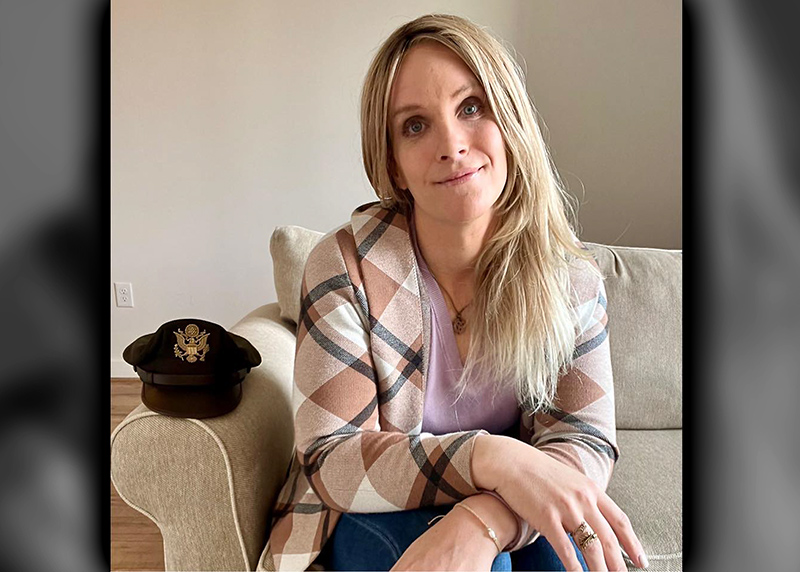Lance Bass: ‘I Was Misdiagnosed’ With Wrong Type of Diabetes
The former NSYNC bandmate was diagnosed with Type 2 diabetes several years ago, but only recently learned that he actually has Type 1.

Entertainer Lance Bass revealed this week that he had been given the wrong diabetes diagnosis, a too-common problem in the diabetes community.
“I developed diabetes during COVID, and I’m really trying to figure out how to control that,” Bass told People in March. “I’m learning what you can eat, when you can eat, when you take your insulin – and all that has just been really hard lately.”
However, in a candid update this week, the former NSYNC band member, now 45, revealed that he had been given misleading information about his health.
In a post on TikTok, Bass said this caused him some trouble.
“So, as many of you know, I was diagnosed with Type 2 diabetes a few years back,” he said. “When I was first diagnosed, I had a difficult time getting my glucose levels under control, even though I made adjustments to my diet, my medications, and my workout routine. Things were just not adding up.
“But, get ready for the real doozy. I recently discovered that I was misdiagnosed! And I actually have Type 1.5, also known as LADA, or Latent Autoimmune Diabetes in Adults…. It has been quite the journey.”
@lancebass Plot twist: I have Type 1.5 diabetes! Dexcom G7 has been a game-changer in my journey, helping me learn more about my diabetes and understand my body’s unique reactions to all the lifestyle changes cool making. Thanks to my Dexcom G7, I’m feeling more confident and in control than ever 💪#DexcomWarrior #sponsored @Dexcom US
He further explained his experience to Yahoo! Life.
“I’m healthy, I work out, I eat right. There’s no way I’m diabetic…,” Bass thought. But after a doctor said tests proved he was “full on diabetic,” he found that his treatment regimen did not seem effective.
“I was so frustrated, and it really was affecting me because I just felt like I was really sick and I could not figure this out.… I felt like something was wrong with me. I just recently discovered that it was a misdiagnosis.”
Diabetes is the name given to a group of health conditions that cause metabolic problems. The body of a person with diabetes has an inability to control its own blood glucose levels. Subsequently, this can lead to numerous long-term health complications. There are dozens of different physiological reasons why a person may develop diabetes permanently or temporarily. Some of the broad categories of problems that can cause diabetes include:
- insulin resistance
- immune system issues
- genetics
- hormonal imbalances
- pregnancy
- medications
- organ damage
Bass now joins a whopping 11.6% of Americans — approximately 38.4 million people — who live with diabetes, highlighting the prevalence and complexity of this condition.
LADA (sometimes colloquially referred to as “Type 1.5”) is an autoimmune disease, a form of Type 1 diabetes, according to the American Diabetes Association’s guidelines.
The beta cells of the pancreas are destroyed by the person’s own immune system. There’s no identifiable cause, and no cure, and 9 out of 10 people diagnosed with T1D have no family history of the disease.
Some T1D patients do have other autoimmune issues, though, such as Hashimoto’s or celiac. In 2022, Lance Bass stated that he had developed psoriatic arthritis, another chronic inflammatory autoimmune condition.
The “latent” aspect of LADA refers to the person’s autoimmunity being hidden or undiscovered. Partially, this is due to the slower onset, which often occurs in newly diagnosed adults, where it could be many months or years before exogenous insulin injections are needed.
And partially it is due to mistaken medical practitioner beliefs that Type 1 diabetes is restricted to being a “juvenile” disease — children only. Because of this high level of confusion, the Juvenile Diabetes Research Foundation (JDRF) recently changed its name to being “Breakthrough T1D” instead.
Leading diabetes researchers, like Maria Redondo, and Richard David Leslie are trying to get the medical establishment to understand that Type 1 diabetes is “more common in adults than in children,” and are calling for wider, earlier testing of adults for the signs of autoimmunity.
Most cases can be detected with a panel of autoantibody tests, along with a test that shows low or declining levels of the proinsulin remnant, C-peptide. If left undiagnosed or improperly diagnosed for too long, a T1D patient’s glucose levels will rise despite taking other Type 2 diabetes medications, and the person could also develop the severe metabolic state called diabetic ketoacidosis (DKA). Daily insulin administration is the primary treatment.
Bass recently joined U.S. Presidential candidate Kamala Harris on TikTok, to ask, “Hey, Kamala. What are we going to say to Donald Trump in November?” “Bye, bye, bye,” she responded.
@kamalaharris Ain’t no lie @Lance Bass
Support Metro Weekly’s Journalism
These are challenging times for news organizations. And yet it’s crucial we stay active and provide vital resources and information to both our local readers and the world. So won’t you please take a moment and consider supporting Metro Weekly with a membership? For as little as $5 a month, you can help ensure Metro Weekly magazine and MetroWeekly.com remain free, viable resources as we provide the best, most diverse, culturally-resonant LGBTQ coverage in both the D.C. region and around the world. Memberships come with exclusive perks and discounts, your own personal digital delivery of each week’s magazine (and an archive), access to our Member's Lounge when it launches this fall, and exclusive members-only items like Metro Weekly Membership Mugs and Tote Bags! Check out all our membership levels here and please join us today!
























You must be logged in to post a comment.